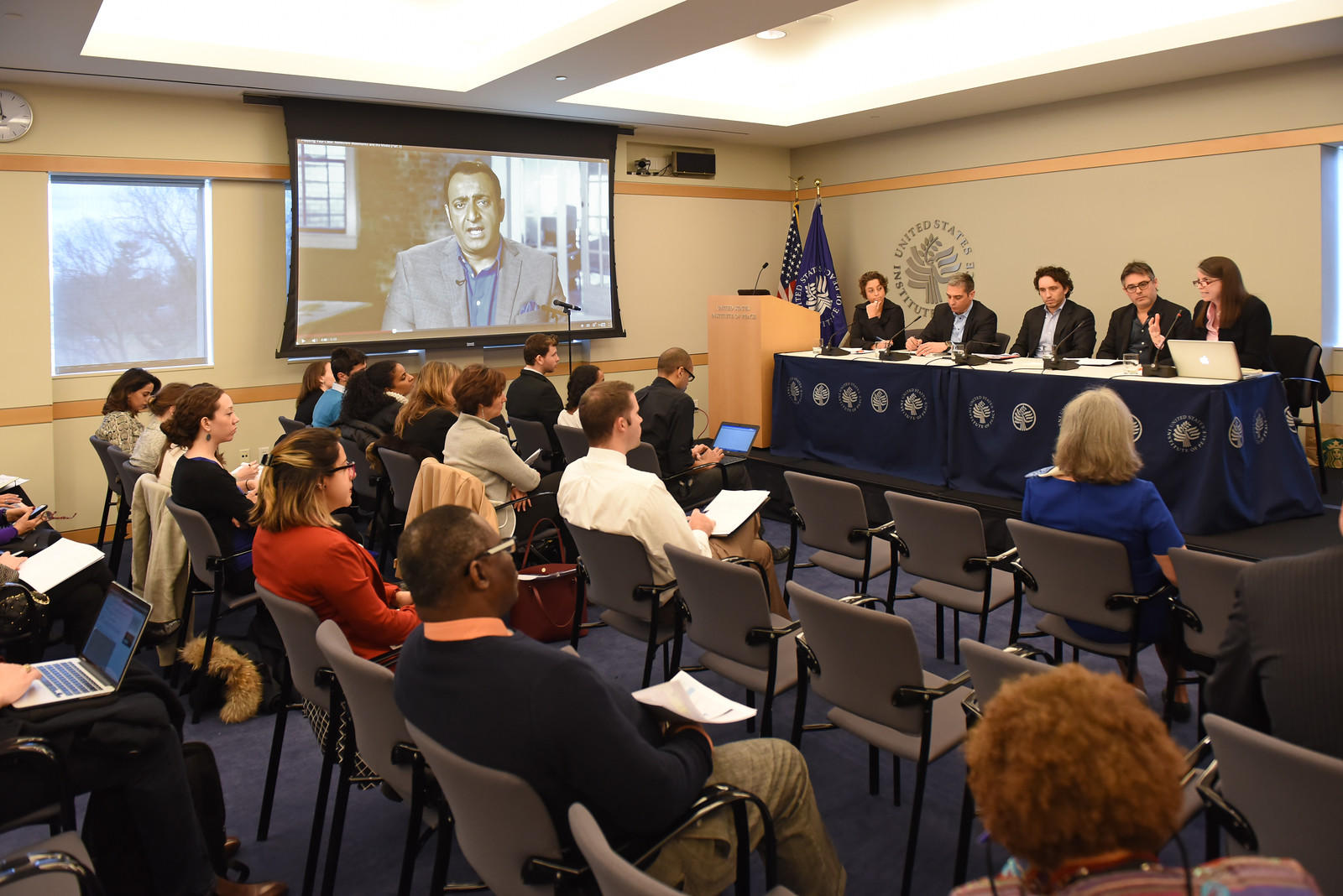From Civil Resistance to Peaceful Resolution
Negotiations, Nonviolent Action, and Media in Popular Movements
Since the Arab revolutions of 2011, unarmed resistance has become a major force in global politics, from Tunis to Tahrir Square and on to Ferguson, Missouri. Nonviolent movements have historically outperformed their violent counterparts, but they don’t always succeed. On February 25 the U.S. Institute of Peace hosted a panel of experts in this field of study and an Emmy-award winning news producer examine the challenges of building and sustaining nonviolent movements, and discuss lessons for scholars, activists, policymakers and practitioners.

The panel was composed of alumni and students from the Fletcher School of Law and Diplomacy at Tufts University in Medford, Massachusetts. A leading conflict resolution expert who has worked with activists in Egypt, Syria and elsewhere discussed how negotiations and nonviolent action can be used together for maximum impact. A scholar of the anti-apartheid struggle in South Africa considered the relationship between the armed resistance and the non-violent movement in that case and the role of strategic communications in dismantling that oppressive regime. An Emmy award-winning network news producer showed how nonviolent activists can better use the media to amplify their efforts.
The discussion was moderated by Fletcher alumnus and USIP Senior Fellow Maria J. Stephan, author of the award-winning book Why Civil Resistance Works: The Strategic Logic of Nonviolent Conflict and co-editor of Is Authoritarianism Staging a Comeback? Initial remarks were followed by questions and answers with the audience. Continue the conversation on Twitter with #CivilResistance.
Speakers
Mr. Benjamin Naimark-Rowse
PhD candidate, The Fletcher School. Dissertation author, “Dear Friend: Correspondence Across Enemy Lines”
Dr. Anthony Wanis-St. John
Associate Professor of International Peace and Conflict Resolution, American University
Mr. Josh Yager
Producer, “Pressing Your Case: How Activists Can Better Exploit the Media”
Dr. Liz McClintock
Founder and Managing Partner, CMPartners, LLC, Executive Director and Chair of the Board of Directors. The Bridgeway Group. Book co-author, Negotiating Public Health in a Globalized World: Global Health Diplomacy in Action
Dr. Maria Stephan, Moderator
Senior Policy Fellow, U.S. Institute of Peace; Non-resident Senior Fellow, Atlantic Council



